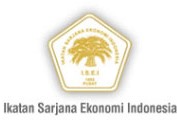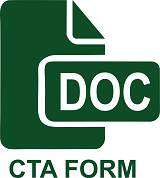Acceleration of Poor Women Capability in Increasing Income Through Self-Help Group
(1) Faculty of Economy, Soegijapranata Catholic University
Abstract
This study analyzed the impact of the acceleration of women capabilities in creating family income through self-help group based micro credit. The analysis unit of this study are the members of UP2K-PKK (Efforts to Increase Family Income). They are poor women who run productive business. The samples of this research are 177 members of the UP2K-PKK in West Semarang. The data is collected using a questionnaire that is delivered directly to the respondents along with in-depth interview. The analysis tool used is multiple linear regressions. This research tests the model that is the family income as the dependent variable and the development capability through self-help group based micro credit as the independent variable. The acceleration of capability through self-help group based micro credit includes microcredit, training, partnerships, technical assistance , membership. The poor women have individual capabilities (initial endowment) including education, business experience, and membership. To know that the capability development through self-help group accelerates the development of individual capabilities, then the multiplicative variables are inserted.The results of this research show that capability development through self-help group accelerates the impact of micro credit and initial endowment in creating the family income.
Keywords
Full Text:
PDFReferences
Amin, S., Rai, A. S., & Topa, G. (2003). Does Microcredit Reach the Poor andVulnerable? Evidence
from Northern Bangladesh. Journal of DevelopmentEconomics, 70, 59-82.
Alkire, S., & Seth, S. (2015). Multidimensional Poverty Reduction in India. World Development,
, 93-108.
Anitha, H. S., & Revenkar, A. D. (2007). Micro Credit through SHG for Rural Development.Southern
Economist, 46 (8).
Basher, A. (2007). Empowerment of Microcredit Participants and Its Spillover Effects: Evidence from
the Grameen Bank of Bangladesh. Journal of Developing Areas, 40 (2), 173-183.
Becker, Gary.1965. A theory of allocation of time. The Economic J. 75 (229).
Chibba, M. (2011). Financial Inclusion, Poverty Reduction and the millennium development goals.
Journal of Micro Credit, 4 (9), 47-99.
Chowdhury Salma Sarahat, Ms. And Chowdhury Sifat Adiya, Ms. 2011. Microfinance and Women Empowermwnt: A Panel of Data Analysis Using Evidence from Rural Bangladesh.International Journal of Economics and Finance.Vol 3.No5
Das, Sanjay Kanti.2012.Micro Finance and Women Empowerment: Self Self Help Group Empowers Women. IJMBS, Vol.2.
Duvendak et.al.2011.What is The Evidence of The Impact of Micro Finance on The Well-Being of Poor People. EPPI-Center, Social Science Research Unit, Institute of Education, University of London. ISBN: 978-1-907345-19-7
Galab, S., and N. Chandrasekhara Rao (2003)). "Women's self-help groups, poverty alleviation and
empowerment. "Economic and Political weekly: 1274-1283.
Garikipati, Supriya (2008). "The impact of lending to women on household vulnerability and
women'sempowerment: evidence from India. "World Development 36.12: 2620-2642.
Gupta, Kamla, and P. Princy Yesudian (2006). "Evidence of women's empowerment in India: A study of socio-spatial disparities." GeoJournal 65.4: 365-380.
Ghadoliya.Empowering Women Through Self -Help Groups: Role Of Distance Education
Gurumoorthy, T.R, 2000. Self Help Groups empower Rural women. Kurukshetra.
Gibb, Sarah. 2008. Microfinance's impact on education, poverty and empowerment: A case study on Bolivian.Altiplanio Development Research Working Paper Series, Institute for Advanced Development Studies.
Goetz, A. and Rina Sen Gupta. 1994. Who takes the credit? Gender, power and control over loan use in rural credit programs in Bangladesh.World Development Report.
Hunt, Juliet. (2002) "Reflections on microfinance and women's empowerment." WOMEN, GENDER AND DEVELOPMENT IN THE PACIFIC: KEY ISSUESS: 13.
Jain, Dhiraj and Bhagyashree Jain.2012. Does Microfinance Empower Rural Women? An Empirical Study in Udaipur District, Rajasthan. Researchers World. Journal of Arts, Science and Commerce.
Jothi, V. N. (2010, jan-march). Socio-Economic Impact: Micro Financing of Self Help Groups.SCMS
Journal of Indian Management.
Kabeer, N. (2005). -Is Microfinance a Magic Bullet for Women's Empowerment? Analysis ofFindings
from South Asia‖. Economic and Political Weekly, XL (44 & 45), pp. 4709-4718.
Khan, Rana Ejaz and Sara Noreen.2012. Microfinance and Women Empowerment: A Case Study of the District of Bahawalpur (Pakistan) .African Journal of Business Management Vol.6.
Kallur.M.S. (2009). Micro credit through SHGs for promotion of Rural Development in Karnataka: The present and the future. In Anil Kumar Thakur and Praveen Sharma (Eds.) Micro Credit and Rural Development (pp 64-79) .New Delhi: Deep & Deep Publications.
Kerr, Emilly.2002. Micro-Credit and Household Productivity: Evidence from Bangladesh
Kumar, Suresh.2003. Role of Watershed Institutions in Mitigating Poverty: An Economic Analysis of Determinants and Impact of Self Help Groups (SHGs) Institutes Across Activities in Micro Watersheds. Horticultural College and Research Institute Tamil Nadu Agricultural University, Tamil Nadu. INDIA.
Lalitha.B., & B.S. Nagarajan. 2004.Empowerment of Rural Women through Self Help Groups: A study in Tamil Nadu.In R.Venkata Ravi, N.Narayana Reddy and M.V enkataramana (Eds.) Empowerment of People. New Delhi: Kaniska Publishers & Distributors
Leelavathy and Aradhana .2006. A study on problems of women Entrepreneurs. Social empowerment of local people Self.Journal of social science, Tiruchengode, Tamilnadu, Vol-III. Issue10
Mayoux, Linda. (2002) N "Microfinance and women's empowerment: Rethinking 'best practice'."Development Bulletin 57.76-80.
Mettei, D. K. (2008). Micro finance through self-help group- The Realities in EconomicOperations. Indian Co-operative Review.
Muhammad, Sulaiman et.al.2012. Women Empowerment and Microfinance: A Case Study of Pakistan. African Journal of Business Management Vol.6.
Manimekalai, M. Rajeshwari, G. 2001. Nature and Performance of Informal Self-Help Groups - A Case from Tamil Nadu, Indian Journal of Agricultural Economics. Vol. 56
Mayoux, Linda. 2005. Women's Empowerment Through Sustainable Micro-Finance: Rethinking 'Best Practice'. Gender and micro-finance website: http //. Genfinance.netand http://lindaswebs.org.uk Musinguzi, P. & P. Smith.
Refbacks
- There are currently no refbacks.

This work is licensed under a Creative Commons Attribution 4.0 International License.






